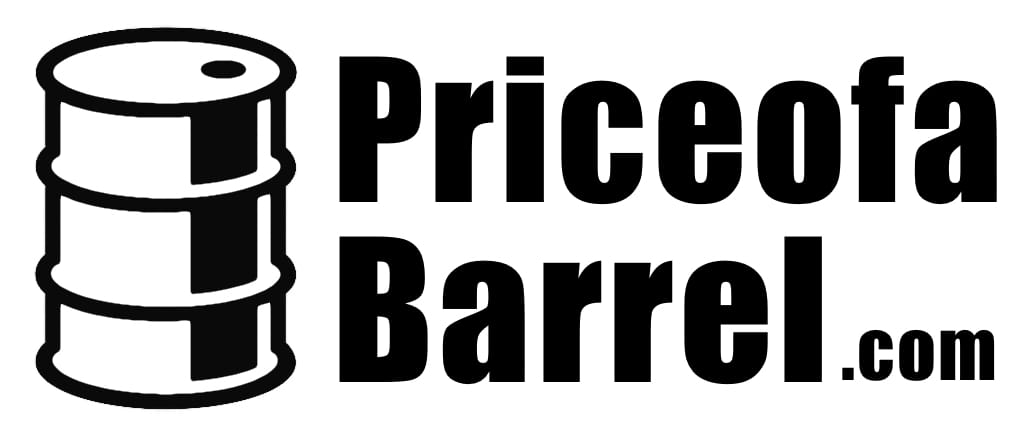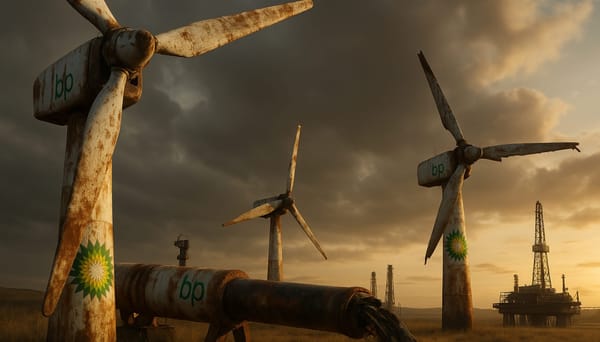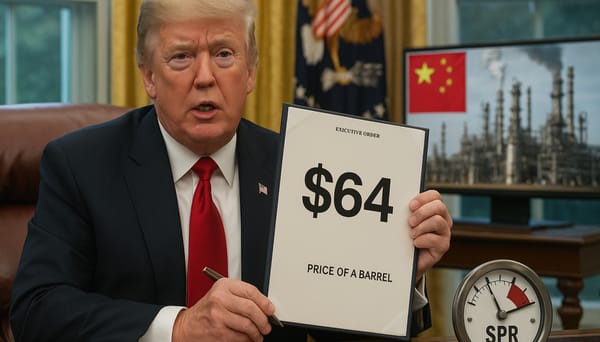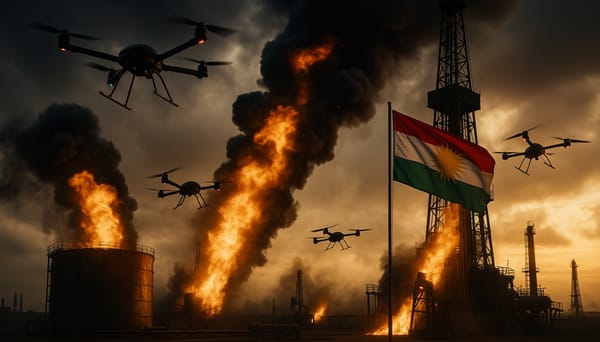Twin Blasts Hit Key Kurdistan Oil Fields as U.S. Threatens Iraq Over Smuggling Links to Iran
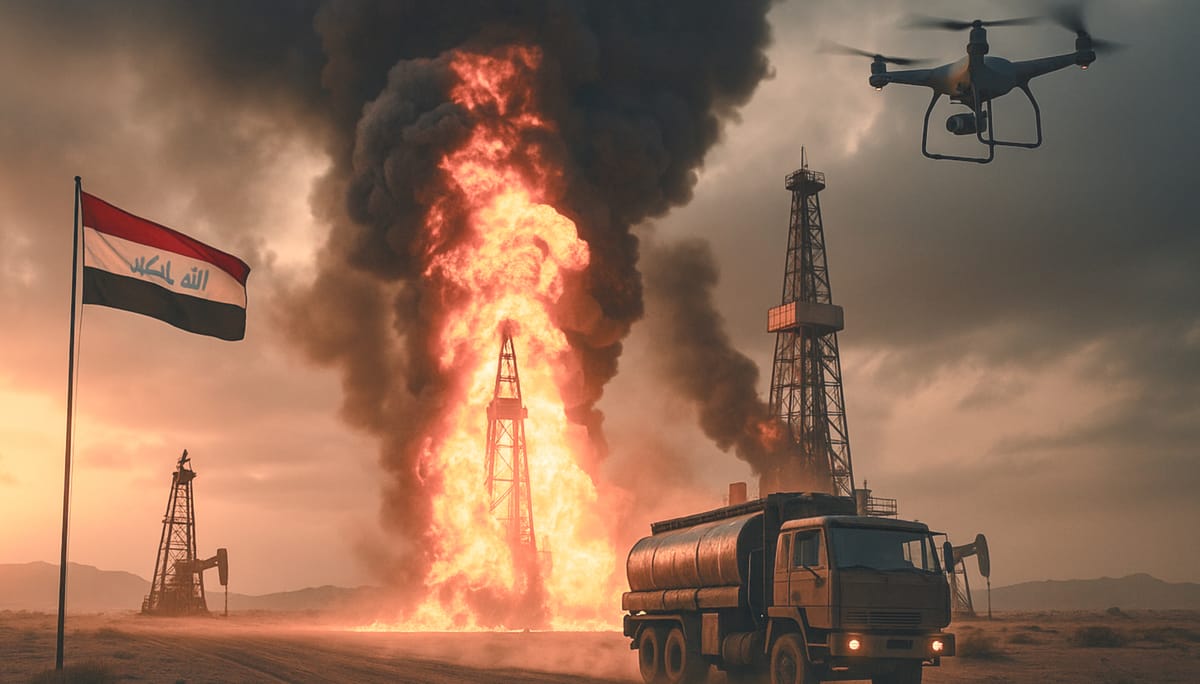
ERBIL — Oil infrastructure in northern Iraq came under direct attack Tuesday as explosions rocked two of the Kurdistan Region’s most critical oil fields — Sarsang and Khurmala — disrupting output and escalating tensions across a region already under U.S. scrutiny for illicit oil flows to Iran.
The twin incidents, which hit the HKN Energy-operated Sarsang field in Duhok and the KRG-run Khurmala field near Erbil, mark the most serious coordinated disruption to Kurdistan’s energy infrastructure since the Iraq–Turkey pipeline was shut down in 2023.
🔥 What We Know So Far
- 2:00 AM, Erbil: the Khurmala field—estimated at ~85,000 bpd—was struck near a main pumping station. Firefighters remain on site. The cause remains unconfirmed, but regional sources suspect a drone or missile strike. No casualties were reported.
- 7:00 AM, Duhok: HKN Energy confirmed an explosion at the Sarsang facility (~29,900 bpd). No injuries were reported, but the site remains on fire. Output—reportedly tens of thousands of bpd—is halted pending a damage review.
Explosion at HKN Energy’s Sarang Field Triggers Emergency Response; No Injuries Reported!
— Kurdistan 24 English (@K24English) July 15, 2025
Despite the absence of casualties, the facility remains engulfed in flames. Emergency response teams are currently on site, working to contain the fire and prevent further damage.
🔗:… pic.twitter.com/YbdX9gdbRp
Both attacks are under investigation.
💰 Billions at Stake in Energy Tug-of-War
The attacks land amid controversy over Kurdistan’s $110 billion gas and oil deals with U.S. firms HKN Energy and WesternZagros to develop the Miran and Topkhana-Kurdamir fields—projects Baghdad has labeled unconstitutional. Under Iraq’s framework, only the federal government can sign energy contracts, but the KRG argues its authority under Articles 112 and 115 of the Iraqi Constitution remains valid.
The political clash is an escalation as Baghdad and the US accuse the KRG of exporting oil outside federal channels — with estimates suggesting as much as 300,000 bpd to Iran and Turkey, generating $200 million per month in illicit trade.
There is, however, momentum in talks between the Kurdistan Regional Government and Government of Iraq with agreement over resuming exports through the Iraq-Türkiye pipeline once binding agreements are in place.
🗣️ "After many fits and starts, its does look like the the Kurdistan-Iraq oil talks are gaining momentum. A deal can lift Iraqi oil production even further" — Javier Blas, Energy and commodities columnist at Bloomberg
🇺🇸 U.S. Pressure Builds
The Trump administration has threatened sanctions and freezing $350M in revenueunless Baghdad reins in Kurdish crude smuggling and reopens exports via Turkey’s Ceyhan port through the Iraq–Turkey Pipeline (ITP).
According to U.S. and Reuters sources, Washington is pushing hard for exports to be redirected to global markets rather than Iran—viewing the KRG as a strategic counterweight to Tehran.
Any threat to Iraq's oil production and exports — accounting for 90% of the country's revenue — risks political strife.
🗣 “VERY Notable,” said Tracy Shuchart, Senior Economist at NinjaTrader Live on the risk of sanctions
📉 Market Risk: Real and Growing
- Supply chain impact: The Sarsang and Khurmala fields account for a significant portion of KRI’s remaining onshore output, especially with the ITP offline.
- Middle East risk premium resurfaces: The blast raises concerns of further sabotage, especially as U.S.-Iran tensions rise and drone warfare becomes more common in the region.
📌 Bottom Line
The attacks on Sarsang and Khurmala expose the deepening fragility of Iraq’s northern oil infrastructure, as energy politics, Western interests, and regional rivalries converge. With U.S. scrutiny intensifying and Baghdad–KRG negotiations in limbo, the explosions could mark the start of a more volatile phase in Kurdistan’s oil future.
